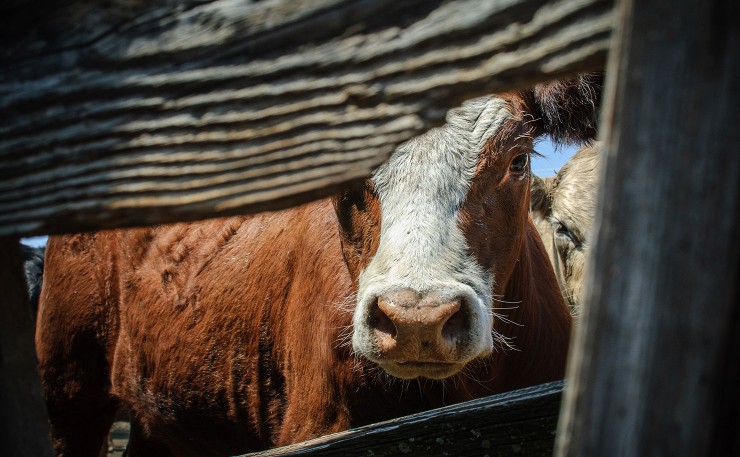Uncomfortable to acknowledge though it is, agriculture is helping to wreck the climate. Fighting climate change means eating less meat, writes Eleanor Nurse.
World leaders will soon gather in Paris for the UN Climate Change Conference to forge a new global climate deal. The overarching goal of the conference is for a universal agreement to reduce greenhouse gas emissions and halt temperature rises, but one of the most significant contributors to global warming is likely to escape without even a mention – animal agriculture.
While every type of food production generates some greenhouse gas, the production of meat, dairy and, to a lesser extent, eggs have a particularly acute effect on our climate.
In 2006 the UN estimated that livestock production is responsible for 18 per cent of greenhouse gas emissions, making it a bigger contributor than all the cars, planes, trains and ships combined.
The most significant source of these greenhouse gas emissions is from methane produced by animal digestion – yes, burps and farts. In Australia this process creates about three million tonnes of methane annually. This is significant because in the short term, methane is a more effective global warming agent than carbon dioxide.
In 2007, Australasian Science Magazine reported that over a 20 year period methane created by animal agriculture in this country would have a greater effect on global warming than emissions from all of Australia’s coal fired power stations combined.
None of this is new information, yet few of the environmental organisations who campaign on climate issues even mention that lowering your meat and dairy consumption has the potential to greatly reduce your carbon footprint.
Part of the immunity afforded to animal agriculture goes to our emotional connection to food and to the significant contribution food production brings to the Australian economy. The problem also reflects the hard fact that most people who identify as ‘environmentalists’ simply don’t want to adopt a plant-based diet, let alone tell anyone else to. But these factors shouldn’t make animal agriculture immune to scrutiny.
Already, farming lobby groups in the EU are beginning to resist climate policy by openly opposing directives that place caps on methane emissions. While this defensive play may seem like a good idea to them now, in the longer term the agriculture sector has plenty to lose if emissions continue unabated.
Climate change is exacerbating drought conditions and drying out some of our most agriculturally productive regions. It has contributed to changes in rainfall patterns and increases in heat, effects that are felt most severely by farmers.
ABC’s Landline recently reported on a drought-weary Queensland cattle farmer who fled the effects of global warming by relocating to Tasmania, opting to move his whole operation across the country rather than ditch an environmentally unsustainable business. This move speaks volumes about the refusal of graziers to realise the interconnectedness of meat production, climate change and drought.
It’s time we start joining these dots. As consumers, we have to start thinking about meat and dairy as environmentally dangerous goods, not unlike coal and cars.
If we do, the good news is that the results can be swift and dramatic. Reducing meat and dairy consumption has already been flagged by the UN as the ‘most attractive opportunity’ to deliver quick reductions in emissions. As long as animal agriculture remains off the table though, these reductions can’t ever materialise.
Donate To New Matilda
New Matilda is a small, independent media outlet. We survive through reader contributions, and never losing a lawsuit. If you got something from this article, giving something back helps us to continue speaking truth to power. Every little bit counts.





